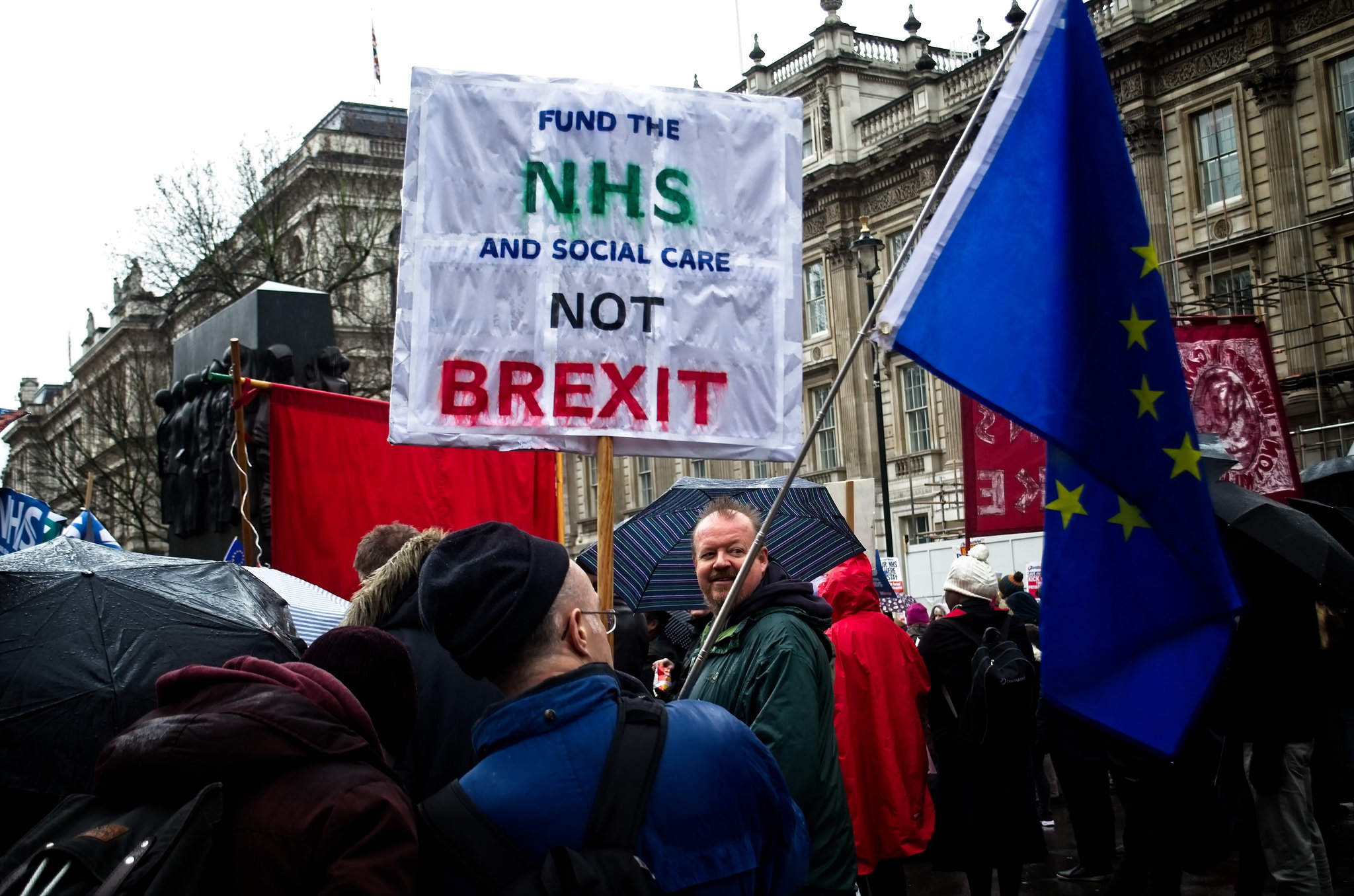
The National Health Service (NHS) has regularly been used as a political tool by both sides of the Brexit debate, with increased healthcare funding often touted as one potential benefit of leaving the EU. However, over the last week, pressure against Brexit has been rising from within the NHS, with the British Medical Association (BMA) and the Chief Executive of NHS England making significant statements against leaving the EU. As an issue with significant political sway, the demands of the NHS have the potential to affect how the British government approaches Brexit negotiations.
The NHS is held in very high regard by the British people. It regularly tops polls of important political issues and areas of national pride for voters, regardless of age or political affiliation. It is therefore no surprise that it was leveraged heavily by both sides of the Brexit debate in the lead up to the 2016 referendum. The most famous example of this is probably the claim by the Vote Leave campaign that leaving the EU would make the NHS £350M ($461M) per week better off, which is often lauded as being a deciding factor for many voters.
Despite the affirmations by some politicians that Brexit is an opportunity to improve the NHS, the general opinion of those from within the healthcare community does not appear to share this faith. Last week, two events provided a strong indicator that sentiment in the NHS is opposed to Brexit.
Firstly, attendees of the BMA’s Annual Representative’s Meeting, who represent doctors practising in the NHS, voted on a motion as to how the organisation should support or oppose Brexit. The motion consisted of seven different parts from the relatively minor motion to “support the UK remaining a part of Euratom to ensure the protection and supply of radioisotopes,” to the very strong motion to “oppose Brexit as a whole.” All seven parts of the motion passed with a significant majority, highlighting the extent to which doctors are against the potential changes to the NHS that could come about post-Brexit.
Furthermore, the Chief Executive of NHS England, Simon Stevens, spoke on a Sunday politics program on the BBC and voiced his concern over certain aspects of Brexit and how they would affect the NHS. Stevens was keen to highlight the dependence of the NHS on freedom of movement to hire new staff, and a strong economy to allow the government to continue to fund services. A change in these circumstances due to Brexit could therefore have an impeding effect on the NHS. Stevens also hinted at a lack of confidence in the government by explaining that the NHS was making arrangements to handle a “no-deal” Brexit, where the availability of drugs and medical supplies imported from the EU states could be put at risk.
With the increased pressure from inside the NHS against Brexit, the question remains over whether the UK government’s position will be influenced regarding negotiations with the EU. On the one hand, Health Secretary Jeremy Hunt is often seen as having significant influence within Theresa May’s cabinet, with some suggesting he is positioning himself to be the next leader of the conservative party. If those within the NHS are able to get him on board, it may help swing May towards negotiating a “soft Brexit.” On the other hand, pessimistic Brexit outlooks from establishment figures have so far done little to win over voters, and have often had the opposite effect and fueled an anti-establishment sentiment. If there is one conclusion to take away from these events, it is the uncertainty from those within the NHS of the future of the healthcare industry post-Brexit.
How well do you really know your competitors?
Access the most comprehensive Company Profiles on the market, powered by GlobalData. Save hours of research. Gain competitive edge.

Thank you!
Your download email will arrive shortly
Not ready to buy yet? Download a free sample
We are confident about the unique quality of our Company Profiles. However, we want you to make the most beneficial decision for your business, so we offer a free sample that you can download by submitting the below form
By GlobalData







Related Company Profiles
NHS, INC.
NHS England
Health Joint Stock Company
BBC S.r.l.